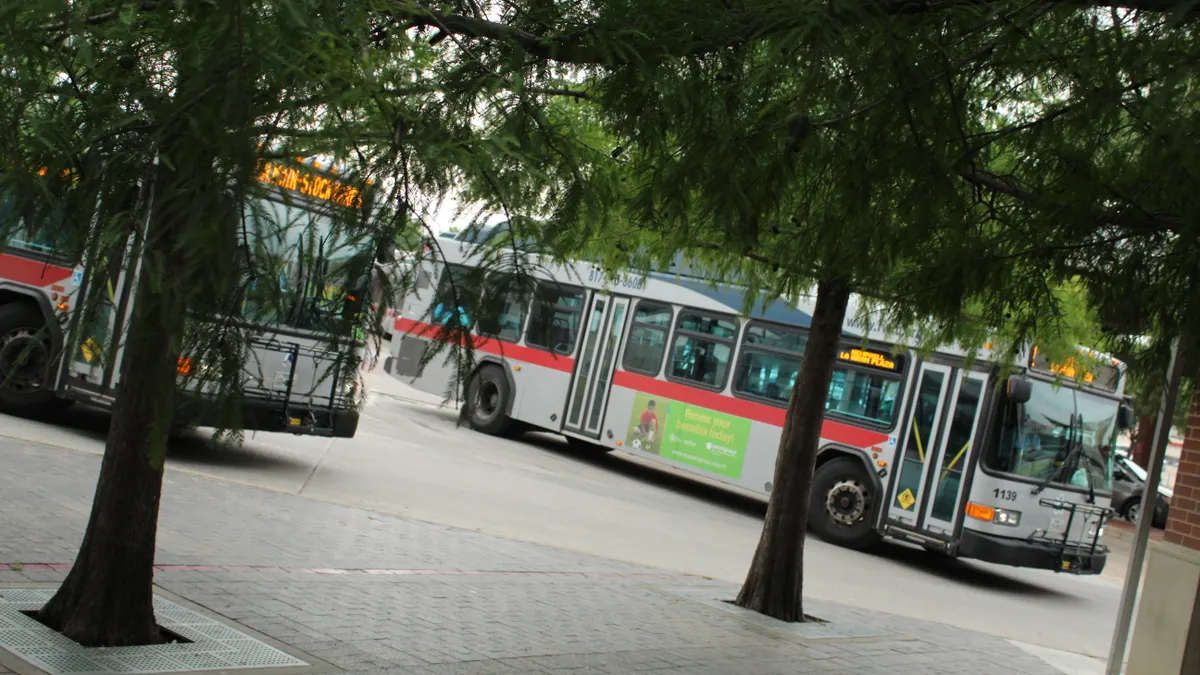Dive Brief:
- Sen. Edward Markey, D-Mass., and Rep. Ayanna Pressley, D-Mass., reintroduced a bill in Congress Monday that, if enacted, would provide $5 billion annually for five years to support fare-free public transportation in the U.S.
- The proposed legislation would establish a competitive grant program for states, cities, transit agencies, nonprofits serving rural areas and tribal governments to cover lost fare revenue from fare-free programs.
-
Grants could also be used to redesign streets and bus networks, install bus shelters, add bus lanes and transit signal priority, and help pay for the operational costs associated with increased ridership.
Dive Insight
“Our country’s public transit system must be made accessible and affordable so that everyone can get to work, school, the grocery store, and other critical services in their day-to-day lives,” Markey said in a press release.
The COVID-19 pandemic helped bring transit inequities to light, as lower-income workers and others who relied on public transportation continued to ride buses and trains while many with office jobs worked from home. Alex Rosander, program associate at the Shared-Use Mobility Center, told Smart Cities Dive in a January interview, “You could say that mobility is a right, and we should start treating it as so.”
But large transit agencies — including those in Boston, Chicago, New York and San Francisco — are struggling to avoid fare hikes and service cuts as ridership has failed to return to pre-pandemic levels, resulting in lower farebox revenues. Federal aid may allow transit operators to maintain service without raising fares.
The two Massachusetts legislators previously entered the bill, dubbed the Freedom to Move Act, in 2020 and 2021.
Boston Mayor Michelle Wu joined Markey and Pressley on Monday afternoon at a press conference in Boston about the bill’s reintroduction. Under Wu, three bus routes operated by the Massachusetts Bay Transportation Authority began running fare-free on March 1, 2022, for two years, following a successful pilot program that saw ridership on one line increase 38%.
“We know that making the system more accessible to all actually improves its performance and reliability,” Wu said in a press release.
Stacy Thompson, executive director of LivableStreets Alliance, a transit advocacy organization based in Cambridge, Massachusetts, said in a press release that transit “brings children to school, elders to health care and millions of workers to their jobs every day,” and called the proposed legislation “a critical step” toward more investment in public transportation.












